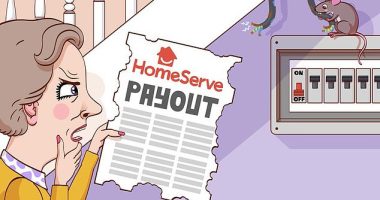HMRC is urging people born between two exact dates to check if they can claim up to £2,000 in free cash.
The department has issued a reminder for people to check if they could have a Child Trust Fund (CTF) lying around.
CTF’s are special tax-free savings account given to children by the government.
Many children got around £250 each from the state at the time their CTF was started.
Those from low-income families or in local authority care received an extra £250.
These bank accounts, due to interest built up, are worth around £2,000 on average now.
READ MORE ON CHILD TRUST FUND
To have been given a CTF you must have been born between September 1, 2002 and January 2, 2011.
Nearly 430,000 18 to 21-year-olds have an unclaimed CTF, worth an average of £2,000, according to the latest figures.
HMRC took to X, formerly known as Twitter, urging those who could have one of the accounts to check.
It wrote: “Were you born between September 1, 2002 and January 2, 2011?
Most read in Money
“Check if you have forgotten savings in a Child Trust Fund – worth around £2,000 on average.”
The cash is tied up until the child turns 18 and the first cohort gained access in September 2020.
Below we reveal how you can track down a Child Trust Fund and what to do if you have one.
How do I find an account?
If you are one of the tens of thousands of young adults who haven’t claimed their account, the government has an online tracing service where you can find out if you have one and which provider it’s with.
To find out more, you’ll need a government gateway login and National Insurance number.
If you are a parent looking to find out about your child’s fund you can either access it online, or you’ll need to send a letter to HMRC with the following details:
- Full name and address
- Child’s full name and address
- Child’s date of birth
- Child’s National Insurance number or Unique Reference Number if known
What is a child trust fund (CTF)?
CTFs are long-term, tax-free savings accounts and were set up for children born between September 1, 2002 and January 2, 2011.
Eligible kids also had the opportunity to set up a child trust fund themselves.
HMRC sent the parents or guardians of qualifying children a starting payment voucher of £250 (or £500 if you were on a low income).
If you didn’t set one up for your child within a year, HMRC would do it automatically.
Anyone can add to the account thereafter, and you can put up to £9,000 a year into it.
The year starts on the child’s birthday and ends the day before their next birthday.
Your child will have full control over the account once they turn 18.
At that point, no more money can be added either.
Until your child withdraws or transfers the money, it stays in an account that no one else has access to.
CTFS were replaced by Junior ISAs in November 2011, so you can’t get one now.
What happens after I’ve claimed the money?
There are a few options to consider once you’ve taken the money out of a matured trust fund.
Usually, people put it straight into a bank account, invest it or transfer it into an ISA.
You can ask your CTF provider to hand over the money and get it cashed into your account.
This way you’ll need to share the bank account details you wish to transfer the cash into with HMRC, and you won’t be able to do this until you’re 18.
But if you’d rather invest it, you can transfer it into an ISA (Individual Savings Account).
The interest rates on a cash ISA are typically lower than a standard savings account, but a Lifetime ISA may be better if you’re saving for your first home.
If you go for a Lifetime ISA, you’ll be able to add £4,000 a year to the account and the government will grant you a 25% bonus as long as you put it towards buying a first home.
You can also wait until retirement to access the cash.
And keep in mind you don’t pay tax on the interest you earn in these types of accounts.
READ MORE SUN STORIES
How you can find the best savings rates
If you are trying to find the best savings rate there are websites you can use that can show you the best rates available.
Doing some research on websites such as MoneyFacts and price comparison sites including Compare the Market and Go Compare will quickly show you what’s out there.
These websites let you tailor your searches to an account type that suits you.
There are three types of savings accounts fixed, easy access, and regular saver.
A fixed-rate savings account offers some of the highest interest rates but comes at the cost of being unable to withdraw your cash within the agreed term.
This means that your money is locked in, so even if interest rates increase you are unable to move your money and switch to a better account.
Some providers give the option to withdraw but it comes with a hefty fee.
An easy-access account does what it says on the tin and usually allow unlimited cash withdrawals.
These accounts do tend to come with lower returns but are a good option if you want the freedom to move your money without being charged a penalty fee.
Lastly is a regular saver account, these accounts generate decent returns but only on the basis that you pay a set amount in each month.
Meanwhile, Martin Lewis has called for the government to “pull its finger out” and help 80,000 people who are missing out on £1,000s of free cash.
Plus, a mum has told how she discovered her son had thousands of pounds squirrelled away in a little-known savings account.
Do you have a money problem that needs sorting? Get in touch by emailing [email protected].
Plus, you can join our Sun Money Chats and Tips Facebook group to share your tips and stories
This post first appeared on thesun.co.uk








